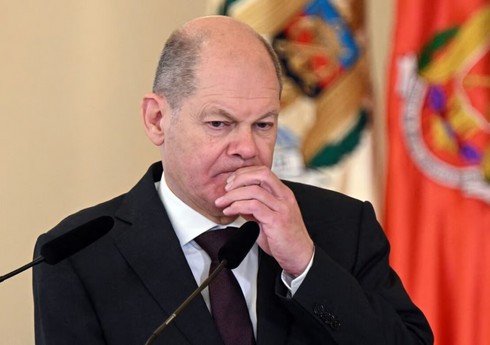Germany‘s three-party government coalition suffered serious losses in two state elections in Bavaria and Hesse, with Chancellor Olaf Scholz’s SPD (S&D) getting its worst result in both states since World War II, according to European Business review.
All three parties lost votes in two state elections in Bavaria and Hesse on Sunday (8 October), two years after Scholz’s 2021 federal government, made up of the Social Democrats, the Greens and the liberal FDP (Renew Europe) was elected.
According to preliminary data from ARD, Scholz‘s SPD got its worst result in post-war history with 15 per cent (-5) in Hesse and 8 per cent (-2) in Bavaria. SPD secretary general Kevin Kuhnert admitted that the results were mainly caused by the performance of the federal government. He told broadcaster ARD on Sunday evening:
“If all the coalition parties lose in both federal states, then this also sends a message to Berlin.”
In both state elections, the far-right AfD party had its best result in the history of elections in the West German state elections with 18 per cent (+5) in Hesse and 16 per cent (+6) in Bavaria.
Infratest Dimap polls showed that migration policy was at the forefront of voters’ minds, with 83 per cent of all voters in Bavaria and 73 per cent of all voters in Hesse saying in exit polls that they would like to see “a different asylum and migration policy so that fewer people come”.
SPD head Lars Klingbeil told ARD that “the number of refugees is too high”, so the government needs to “urgently address the problem”.
In Hesse, Federal Interior Minister Nancy Faeser led the SPD’s campaign hoping to become the state’s next prime minister. However, she has no chance of forming a majority. According to polls, only a third of voters said she was doing a good job as federal minister.
In addition to migration policy, AfD head Alice Weidel also cited the controversial heating law as an explanation for her party’s success, saying in an interview with ARD that citizens would be “dissatisfied with the federal government’s prohibitive policy.”
Not only Scholz’s SPD suffered a defeat, but the other two coalition partners also lost votes. The Greens reached 15 per cent (-3) in Bavaria and 15 per cent (-5) in Hesse, also losing to the AfD in both states.
The liberal FDP, meanwhile, fell below the parliamentary threshold in Bavaria with just 3% (-2), meaning a loss of seats in the state’s parliament. In Hesse, the party barely reached the 5 per cent threshold, according to the latest evening forecasts.
